Bridging the red and blue divide one conversation at a time
Listening skills key to renewing civility in political discussions
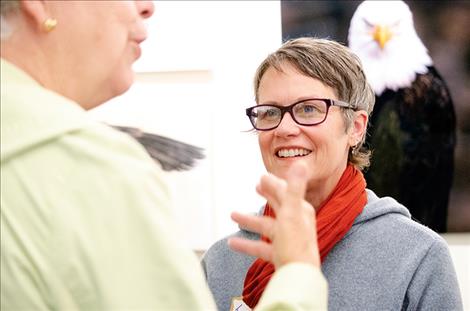
Karen Peterson
Last October in the Stevenson Community Library, in Stevenson, Washington, citizens from both sides of the political divide gathered for a workshop hosted by Better Angels.
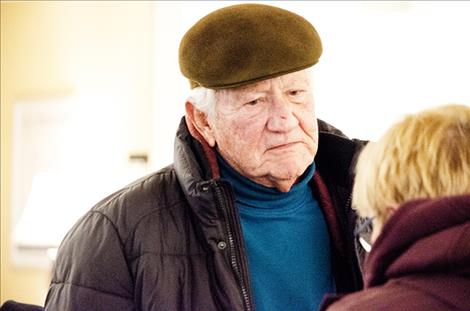
Karen Peterson
Workshop participant Donald Miller remembers when talking about politics was fun.
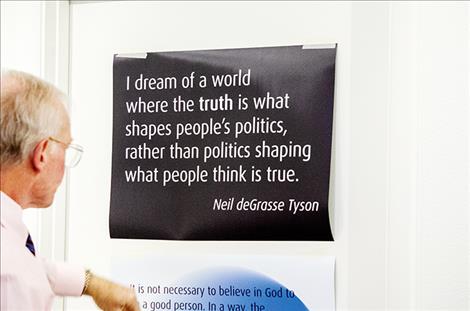
Karen Peterson
Karen Peterson / Valley Journal Dan Sockle, Better Angels member, places signs on the library walls before the workshop.
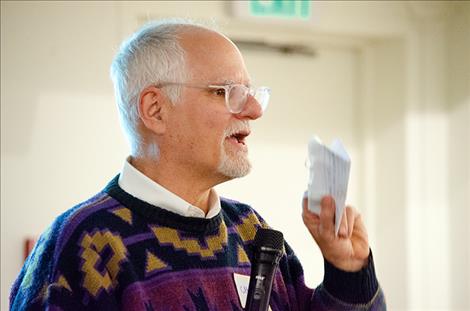
Karen Peterson
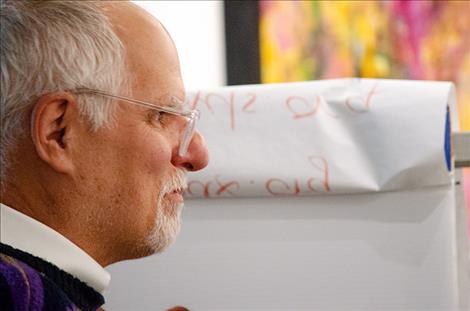
Karen Peterson
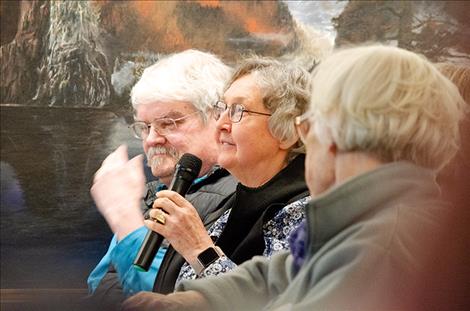
Karen Peterson
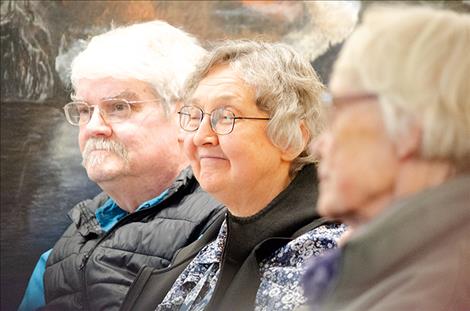
Karen Peterson
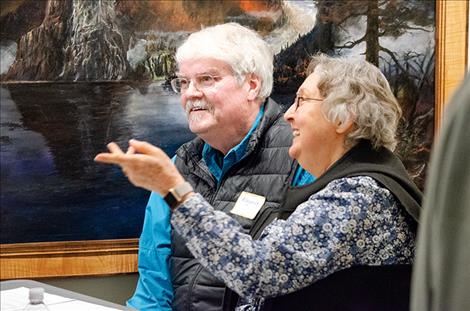
Karen Peterson
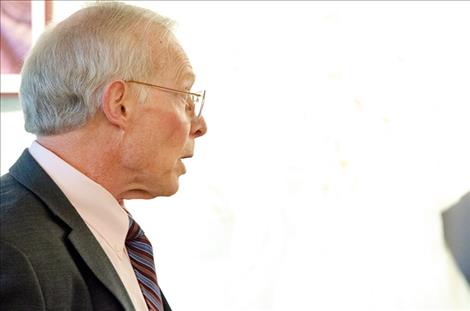
Karen Peterson
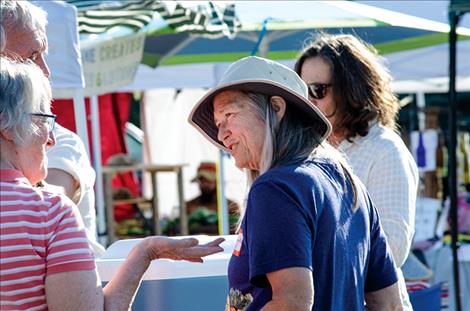
Karen Peterson
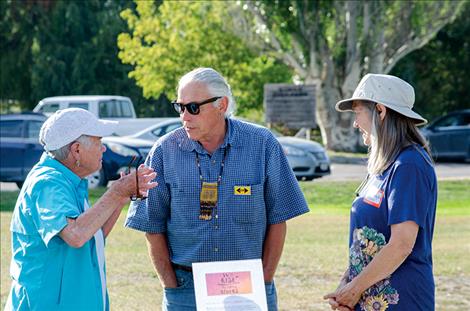
Karen Peterson
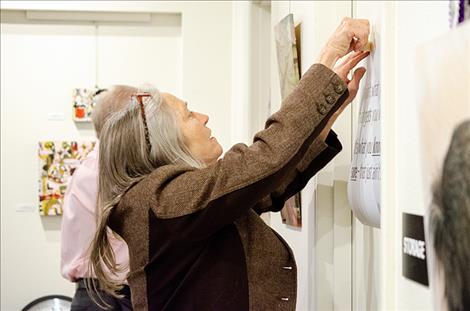
Karen Peterson
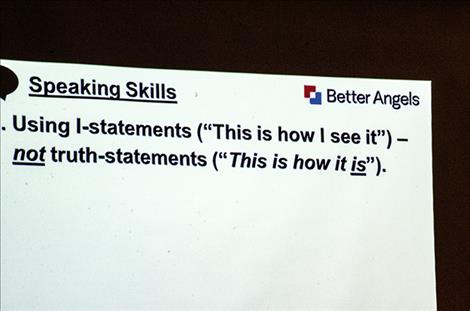
Karen Peterson
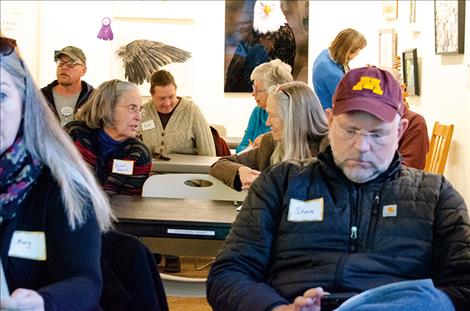
Karen Peterson
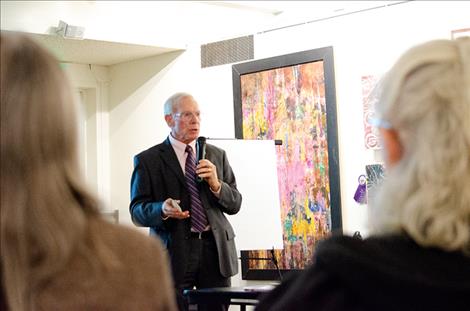
Karen Peterson
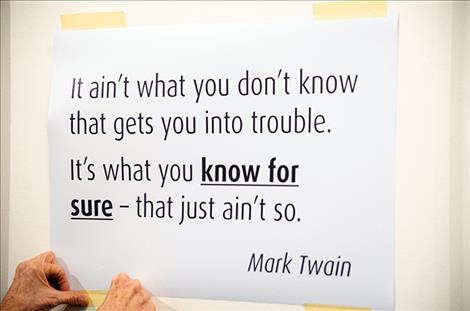
Karen Peterson
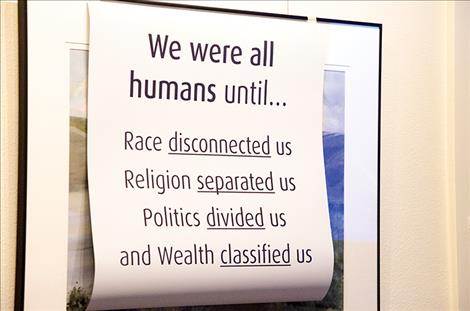
Karen Peterson
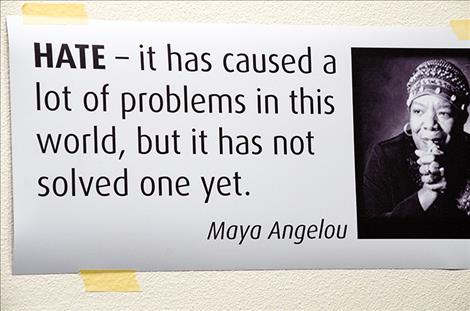
Karen Peterson
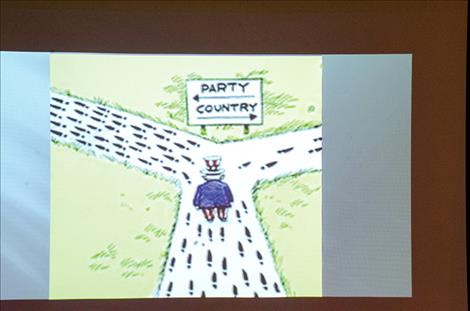
Karen Peterson
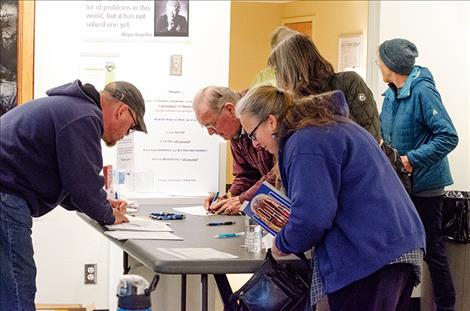
Karen Peterson
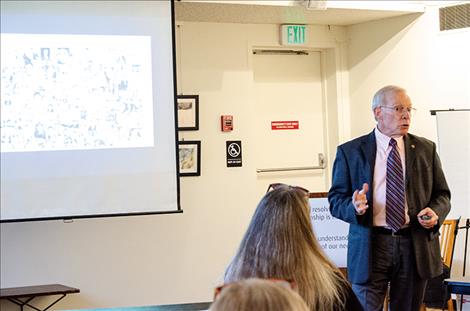
Karen Peterson
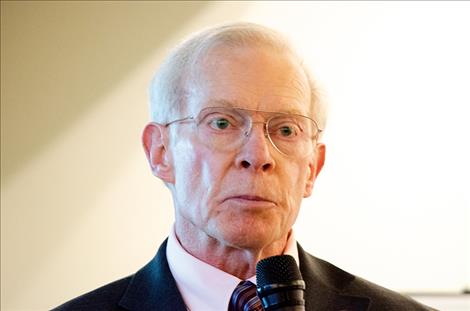
Karen Peterson
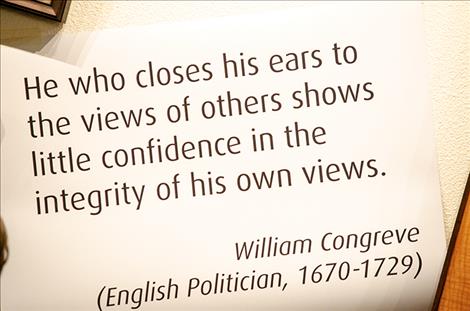
Karen Peterson
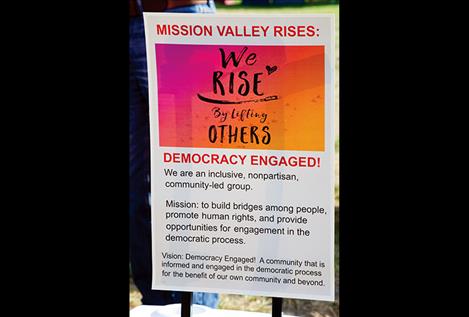
Karen Peterson
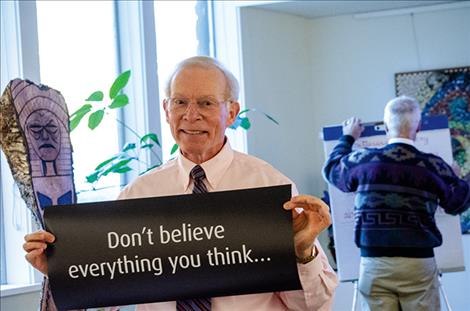
Karen Peterson
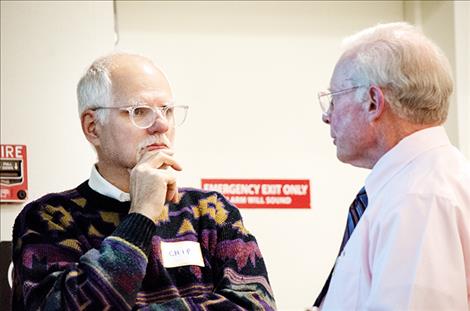
Karen Peterson
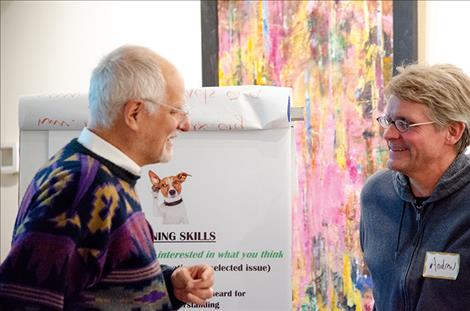
Karen Peterson
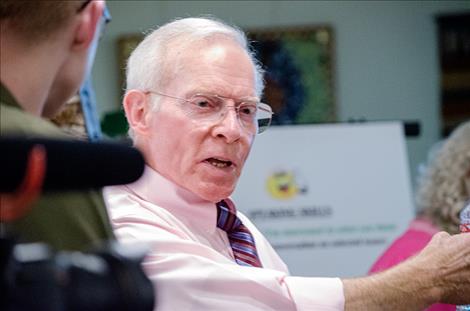
Karen Peterson
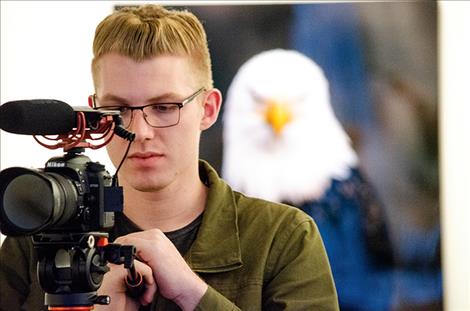
Karen Peterson
Issue Date: 3/17/2020
Last Updated: 3/17/2020 7:24:19 PM |
By
Karen Greene
Keep Reading!
You’ve reached the limit of 3 free articles - but don’t let that stop you.















